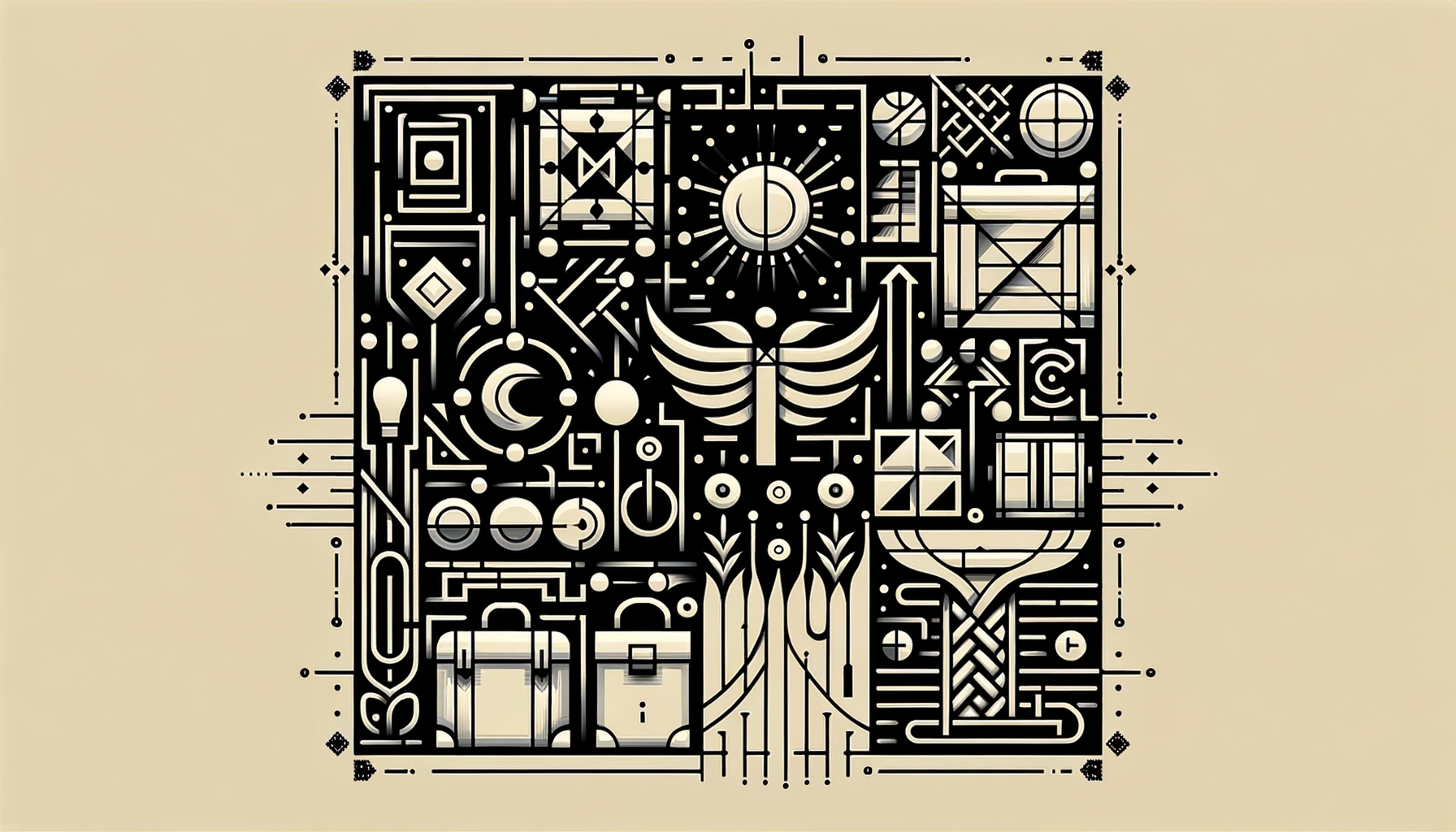Do you know that giddy feeling you get when you step off the plane in a brand-new destination? It’s a mix of excitement, mild terror, and “Wait, how do I say bathroom in this language?” Travel has a way of shaking up your routine, forcing you out of your comfort zone, and daring you to see yourself in ways you couldn’t before. For me, it’s been a mirror, a stage, and sometimes a talking stick in couples' therapy (more on that later). Each trip has left its stamp not just on my passport, but also on my sense of self. What have I learned? Let me take you along for the ride.
The Art of Being Comfortable With Discomfort
Nothing humbles you quite like being stared at by a shopkeeper in a Turkish bazaar because they’ve just realized you don’t know how to count past ten in Turkish. (Side note: It’s “on bir,” for eleven. You’re welcome.) My year living in Istanbul taught me that floundering awkwardly is part of the human condition—and more importantly, it’s survivable.
Whether it’s sweating over a menu in a country where the word “chicken” suspiciously looks like the word “rabbit,” or attempting to make a friend in a culture where people don’t overshare like Parisians at a wine bar, you learn that discomfort is not your enemy. We’re so wired to avoid making mistakes or feeling out of place, but it’s in those cringey moments that you grow.
Take this into your relationships: If you can survive chasing a bus in Cairo alongside 16 people who also think they’ve reserved the same seat, you can survive telling someone you “like like” them. Trust me, nothing makes you brave like surviving public embarrassment.
Pro Tip: Learn three key expressions before visiting a new place: “Please,” “Thank you,” and “I’m sorry, I have no idea what I’m doing.” You’d be amazed how far humility and a smile go.
You’re Allowed to Be a Work in Progress
I once climbed Mount Saint-Michel in Normandy wearing the least practical shoes imaginable: ballet flats. I spent the entire day lurching across uneven cobblestones proclaiming, “This was a poor choice.” And yet, by the time I reached the top, toes blistered but spirit intact, I felt victorious. You don’t have to be perfectly prepared to conquer what’s in front of you, and travel reinforces that every time.
This is a lesson that’s bled into my personal life—especially when it comes to love and relationships. Nobody has it all figured out. The idea you should be this polished, “ready-to-commit” human, like a product waiting to be unwrapped, is a myth. Maybe you’ll stumble emotionally the same way I stumbled physically that day, but that’s okay. Life is messy—so are maps, relationships, and yes, cobblestones.
Instead of being critical about the unfinished parts of yourself, try taking them as signs of motion. You’re climbing, after all, one awkward step at a time.
Connection Transcends Language
Growing up as an Egyptian kid in Paris, I often acted as the cultural bridge between my parents and my classmates. I’d sprint home after school to explain why my mom offered visitors atayef during Ramadan, while my friends were like, “Couldn’t she just bake cookies like everyone else?” (Spoiler: No. And you’re missing out.) So I entered adulthood understanding this universal truth: Humans crave connection, even when they don’t speak the same language.
I don’t think that hit me as hard as it did at a bus station in Florence, when an older Italian woman, mistaking me for a local, poured out a story about her son. I caught fragments—her voice cracked when she talked about him living far away, something about Sunday dinners—but mostly, I nodded empathetically. At the end, she smiled, patted my hand, and walked away lighter.
Here’s the real kicker: Even outside romance, it’s not about saying the “right” thing or knowing the words—it’s about showing you care. Whether that’s a nod, a smile, or hands wildly miming “I really need help with these directions,” your vulnerability in seeking to understand others helps them feel seen.
In dating and relationships, this applies more than we care to admit. We spend so much time “crafting a text” or holding back “I love you” like it’s a chess move. But affection needs no subtitle. Shared glances, a laugh at an inside joke, or just being present holds more power than perfect phrases.
Packing Light … and Letting Go
Here’s the unspoken truth about packing: You don’t need half the things you brought. I’ve carted an Ottoman-sized suitcase to different world capitals, only to wear the same three outfits on rotation while muttering regretfully about broken luggage wheels. (All it takes is one uphill walk in Montmartre to learn this the hard way.) Over time, you begin to ask: What is truly essential?
Funny enough, that’s where travel and heartbreak intersect. Let me explain.
A breakup in London once left me riddled with a similar baggage crisis—emotional, not physical. Couldn’t let go of the Spotify playlists we’d made? Check. Still keeping their jacket in the hope I’d “casually” return it? Ugh, check. But my travels reminded me that moving through life unencumbered requires pushing old things (and people and habits) aside to make space.
Carrying too much around only slows you down.
Pro Tip: When packing—a suitcase or your emotional toolkit—consider what truly adds joy or serves a purpose. Marie Kondo would be proud.
The World Is Big, but You’re Still You
When you’re standing at the edge of the Bosphorus, watching ferries cut across the sparkling water and the call to prayer echo from mosques, it hits you: The world is enormous. But instead of making you feel small, it can make you feel expansive. I think this is travel’s biggest gift—it stretches you.
But here’s the caveat: no matter where you go, you can’t outrun yourself. This became hilariously clear one night in Marrakech over an ill-advised debate about pineapple on pizza (I regret nothing). A friend turned to me and said, “Why do you always argue like you’re defending your dissertation?” I laughed, because they were spot on—even miles away from academia, I never stop being that Zahra.
So, while travel forces you to grow, it also reminds you that your core traits—your quirks, your habits, your love of Umm Kulthum—will follow you. And isn’t that comforting? You’re not a blank slate wherever you go; you’re just stretching who you are into new corners of the world.
Home Is Where You Find Belonging
People assume that, as a serial expat hopping between countries, I must be forever searching for “home.” That question haunted me for a while. Is it the latticed balconies of Alexandria? The quiet corners of French libraries? The London pubs where I overanalyze relationships with friends?
But here’s the truth: “Home” often stops being one place and starts being a connection—to yourself, to others, and to the things that ground you. It’s the comfort of knowing that, no matter where in the world you are, you’re okay.
Final Boarding Call: What’s Your Next Journey?
The more places I’ve visited, the more I’ve realized I carry a suitcase packed with lessons—about the importance of imperfection, the power of letting go, and the ways connection can cross any boundary. Sure, getting lost or ordering something bizarre off a menu might feel like a failure in the moment (I mean, goat brains aren’t for everyone), but each experience is another stitch in the garment of self-discovery.
So wherever your next flight or train ticket takes you, remember this: The world will always have more to show you, and you’ll always have room to grow. Adjust your straps, roll with the turbulence, and enjoy the journey. You’ve got this.




















